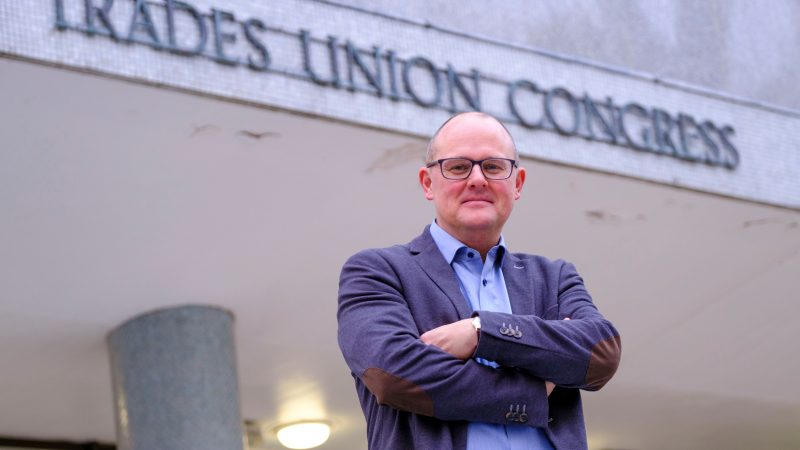Such a strategy was tried in 1970s and came to grief in the mid-1970s secondary banking crash.

Finance is central to the workings of a capitalist economy. We all make use of banks, debit/credit cards, insurances, pensions; foreign exchange and a variety of financial services, but can do without the incessant speculation and frauds that are so common in the finance industry. Is finance really the “crown jewel in our economy”, as the Chancellor claims? In 2023, it contributed £208.2bn to the UK economy, 8.8% of total economic output, and 1.17m jobs. The slick City PR machine never tires of exaggerating its importance. It claims that some 2.4m jobs across the UK are in finance. But only 678,000 work directly in the City of London. It claims that 1.1m work in the finance industry and anther 1.4m work in related professional services. The point to note is that majority of accountants, lawyers, actuaries, IT experts are spread out across the economy and do not mainly work in the finance industry.
The finance industry claims that in 2023 it paid £110.2bn in taxes. This is extrapolated from a survey of 82 finance firms. The scare quotes around the findings are that “PwC has aggregated and anonymised data from professional and financial firms to produce study results, which have not been verified or audited for accuracy”. So the industry’s tax contribution cannot be independently corroborated.
The headline tax amounts are not what they claim to be. The alleged £110.2bn tax contribution includes £61.8bn of taxes collected from others. For example, £40.1bn of income tax and national insurance is collected from employees and borne by employees, not the industry; £4.7bn is tax deducted at source i.e. borne by investors and £17bn VAT is borne by customers. That leaves £48.3bn tax borne by the finance industry, including only £14.2bn corporation tax, and £3.9bn of bank levy and surcharge.
Too many politicians are mesmerised by the vast amounts spent on clever bets in the world’s financial markets. One commentator noted that the world GDP is around $105 trillion but the “value of the financial derivatives which arise from this activity – that’s the subsequent trading – is $667 trillion …in terms of the things it produces, that business is useless. It does nothing and adds no value”.
Vast amounts of money are wagered on the price of shares, bonds, derivatives, food and commodities. Money is simply transferred from A to B, and is not invested in productive assets. This organised gambling produces no benefit to society in aggregate, “because every gain is matched by an identical loss. It all sums to zero”. The punters play with other people’s money but collect vast salaries and bonuses.
The scandal-ridden finance industry is bloated. In 1970, its assets were worth about 50% of UK GDP but by 2022 its assets hit £27 trillion, compared to GDP of £2.5 trillion. A large part of this are complex gambles, a bit like someone placing bets on horses and treating betting slips as an asset. When the race is run the betting slips either result in gains or become worthless. This is the reality of gambles on derivatives and complex financial instruments. The industry’s size has no relationship with any economic activity and it is parasitical on the real economy. .
Neither the government nor the City acknowledges the havoc caused by the finance industry’s speculation and its role in depriving skilled labour to more productive economic sectors. Research shows that between 1995 and 2015 the finance industry made a negative contribution of £4,500bn to the UK economy, which effectively wiped off two-year’s gross domestic product. Of this loss around “£2,700 billion is accounted for by the misallocation of resources where resources, skills and investments are diverted away from more productive non-financial activities into finance. The other £1,800 billion arises from the 2008 banking crisis”. Endless scandals since 2015, such as dud financial products, pension scams, London Capital and Finance, Woodford Equity Income Fund, Connaught Income Fund and others have reduced the contribution of the finance industry to the economic wellbeing of the country.
Almost all UK banks have been involved in mis-selling financial products, tax dodges, sanctions busting and illicit financial flows. Successive governments indulge them. The Bank of Credit and Commerce International (BCCI) was the biggest banking fraud of the twentieth century, and was closed by regulators in 1991. To date, there has bene no investigation. In 2012, HSBC admitted “criminal conduct” and was fined a record $1.9bn by the US authorities. No action was taken in the UK. Instead, the then Chancellor George Osborne secretly wrote to the US authorities and urged them not to prosecute HSBC as the bank was somehow too big to fail. Inevitably, the City is magnet for illicit financial flows. A UK Minister stated that around 40% of the dirty money in the world is going through the City of London and other crown dependencies.
The UK has one of the world’s largest finance industries, and at the same time businesses are starved of capital for investment in productive assets. The City is hollowing out the economy. In 2023, only £18.8bn in total was raised on the London Stock Exchange. The share buybacks were £46.9bn for the same period. As a Bank of England economist put it “among UK companies, share buybacks have consistently exceeded share issuance over the past decade … In other words, over the past decade the equity market no longer appears to have been a source of net new financing to the UK corporate sector”.
Raising money from capital markets brings its own challenges as finance degenerated into a rent-seeking activity. The City expects higher dividends. In 1970, major UK companies paid out about £10 of each £100 of profits in dividends, but by 2015 the amount was between £60 and £70, and rising. The Bank of England noted that “80% of publicly listed businesses that underinvested answered yes when asked if financial market pressures for short-term returns were an obstacle to investment. 40% of privately owned businesses also answered yes”. The lust for short-term returns is accompanied by a squeeze on labour and investment.
Inevitably, the UK has been bottom of the G7 league for investment in productive assets in 24 out of last 30 years. It ranks 28th among 31 OECD countries. This is despite the state-backed Private Finance Initiative (PFI) programme, which ran from 1992 to 2018 and guaranteed corporate profits. The finance industry invested £60bn in schools, prisons, hospitals, roads, street lighting and military equipment with agreement to receive repayments of over £306bn.
The stark truth is that the City does not have the appetite for long-term planning, investment and risks. As a result the UK economy is becoming more insecure. It imports roughly 40% of its food and 40.8% of energy needs. The government wants to build 1.5m new homes, but the UK lacks building materials. The UK is the world’s largest importer of bricks and imported over 500m bricks in 2022, and 30%-40% of its cement. Rather than building industrial capacity, the finance industry is focused on cash extraction.
Successive UK governments have failed to empower regulators or clean-up the City. There have been no effective corporate governance or regulatory reforms. Almost every law has been bent to support the City and it has delivered little of value in return. Instead of relying upon the City the government could create its own bank to direct and support investment in emerging industries and technologies, but such interventions are not on the political agenda. Governments can back more productive industries, but rarely do. For example, the manufacturing sector accounts for around £518bn; 23% of GDP; and 7.3m jobs. Every £1m of manufacturing activity supports a further £1.8m through indirect and induced multiplier effects. But the government backs the finance industry, which continues to find novel ways of gambling and enriching a few. The normal rules of capitalism are suspended as failed banks are always bailed out. This fuels more gambling and predatory practices. The casino economy is unlikely to deliver prosperity or happiness to the masses.















